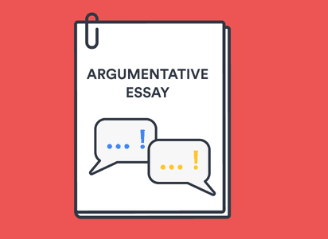A few can mean three, as you’ve probably heard others say (and very possibly stated yourself), or four or seven. There is no set limit for how many constitute “a few.” Likewise, there isn’t a clear limit for what constitutes “several things” or “a couple of things.” So, if you are using double-meaning words or phrases and deceiving somebody, you are committing the equivocation fallacy.
What would you think if someone told you they were a brilliant student because they occasionally slept in class? What would you think if they were questioned about their claim and it came out that they had missed twelve classes during the semester?
You might feel duped and point out that they purposely hid how frequently they slept through class by using the phrase’s ambiguity. Equivocation is a term used to describe this type of dishonesty.
What is the logical equivocation fallacy?
Equivocation, which is naming two distinct things with the same name, is considered a logical fallacy of employing a term or phrase in reasoning either:
- In an unclear manner
- To imply more than two things
Here’s a sample:
- Taco salad is a salad, and salads are nutritious. As a result, Taco salad is nutritious.
Taco salad is obviously not a dish that most people would consider to be healthy. Equivocation can occasionally be employed to create a comic effect. In other instances, it is used to support a claim of bad faith. For instance, a student might respond to a teacher’s inquiry about a pending homework by saying that they worked on it the night before. Technically speaking, it’s accurate, but the student assumed the teacher would interpret their words as “done” when they only meant that they had made some progress on the task that was still unfinished.
The term “bad faith argument” refers to a claim or stance that the arguer is aware is untrue or unfair. People typically use bad faith arguments to avoid seriously considering the problems at hand and admitting that their opponents’ viewpoints are well-supported and understandable. There are other logical fallacies that can be used in an argumentative essay or bad faith argument besides equivocation. The straw man and red herring fallacies are two other fallacies apart from the equivocation fallacy frequently appearing in conversations of this nature.
Equivocation is an informal fallacy; therefore, the argument’s illogic is in the argument’s application rather than in the argument’s structure.
It is common to express equivocation in the following manner: “If X is Y and Y is Z, then Z must be X.” Here are a few illustrations:
- Natural soil exists. Natural things are healthy for you. So it’s safe to eat soil.
- Men are equal. Women are not men, so all women are not equal.
- Cats are wonderful pets. Tigers are considered big cats. Hence, tigers are wonderful pets.
Equivocation is obvious when it is expressed in this manner. It can even come out as humorous, making it appear absurd to arrange it with other logical fallacies you could come across when writing.
However, the equivocation fallacy doesn’t always take this form. It’s possible to lie by omission, as we covered in our example of the student who told their teacher they had worked on their assignment the night before. Here are a few samples:
- When a driver is pulled over, they claim to have only a couple of beers, but they actually had two mixed drinks in addition.
- A consultant claims they haven’t worked for your main rival but leaves out that they have for other rivals.
- A doctor states that medicine can have slight side effects when he knows that the medicine can cause a heart attack.
What is the equivocation fallacy used for?
Equivocation is a common obfuscation technique. Equivocation is also referred to as doublespeak, which you may be familiar with. Several examples of doublespeak in English are as follows:
- A bit shaky instead of very poor quality
- person of interest instead of subject
- passed away instead of died
Euphemisms are frequently used in doublespeak, but they are not always used. For example, equivocation can be one of the toughest logical fallacies to spot in a piece of writing since there are so many different ways to use it.
In writing, you can spot the equivocation fallacy by carefully scrutinizing an argument to find the discrepancy between the arguer’s initial assertion and their final conclusion. However, it can be difficult to dissect when you’re up against an argument that isn’t as succinctly stated as those in the first set of examples we gave. Look at this sample:
- Participants in self-defense classes learn how to fight more effectively, but fighting is wrong. Therefore, a self-defense class shouldn’t be offered on campus.
The argument is made from the premise that self-defense classes teach students how to fight more effectively. It is the claim being made, whether it is true or not. A logical fallacy must be exposed for what it is—a weakness in how the argument is put together—rather than being proven false. Whether a claim is fallacious or not has nothing to do with whether it is true or false.
Take a look at the disputer’s conclusion: self-defense classes shouldn’t be offered on campus. Fighting is immoral, they assert, not because the training would teach participants how to fight more effectively. According to the second claim, fighting is wrong and does not naturally follow the first. Again, whether it is true or not is unimportant in this situation; a more rational claim would be that developing pupils’ fighting skills will increase interpersonal violence.
Critical thinking is necessary to separate fact from the author’s viewpoint in a case of equivocation fallacy. Similarly, it demands you consider both sides of the issue. For example, while you might concur that fighting is wrong in most situations, you also probably concur that being able to defend one against an unprovoked attack can be a valuable ability.
In a written argument or a face-to-face debate, if your opponent is being ambiguous, ask them to be more specific. Inform them that you need precise examples or numerical data to continue the conversation in good faith because you cannot reply critically to ambiguous assertions. If they’re open to it, you can also ask them to clarify how they arrived at their conclusions, which might help them recognize the weakness in their own case.
Sample logical equivocation fallacy
Equivocation may appear as follows
- Since I was returning from vacation that week, I informed my family that I would be unable to attend the reunion. So even though the reunion is on Friday and I return home on Thursday, I didn’t tell them an untruth regarding my return date.
- Kiwi is a fruit, so a kiwi soft drink is considered a serving of fruit.
It may also appear as follows:
- Since our business prides itself on efficiency, we’ve chosen to cut expenses this year.
- I have the freedom to speak, so it is correct to speak my mind.
Equivocation fallacy FAQs
What is the logical fallacy of equivocation?
The logical fallacy of employing a word or phrase in an argument in an ambiguous manner or to mean two or more things is known as equivocation.
How does the logical fallacy of equivocation operate?
The equivocation fallacy relies on a word’s ambiguous meaning or several interpretations to perplex the reader or listener and omit important details.
How can you identify the equivocation fallacy?
In writing, you can spot the equivocation fallacy by carefully scrutinizing an argument to find the discrepancy between the arguer’s initial assertion and their final conclusion. In some circumstances, you must scrutinize the argument and distinguish between the writer’s opinion and the facts.
Total Assignment Help
Incase, you are looking for an opportunity to work from home and earn big money. TotalAssignmenthelp Affiliate program is the best choice for you.
Do visit : https://www.totalassignmenthelp.com/affiliate-program for more details
Total Assignment help is an assignment help online service available in 9 countries. Our local operations span across Australia, US, UK, South east Asia and the Middle East. With extensive experience in academic writing, Total assignment help has a strong track record delivering quality writing at a nominal price that meet the unique needs of students in our local markets.
We have specialized network of highly trained writers, who can provide best possible assignment help solution for all your needs. Next time you are looking for assignment help, make sure to give us a try.
Looking for Assignment Help from Top Experts ?
Get the best Assignment Help from leading experts from the field of academics with assured onetime, 100% plagiarism free and top Quality delivery.




